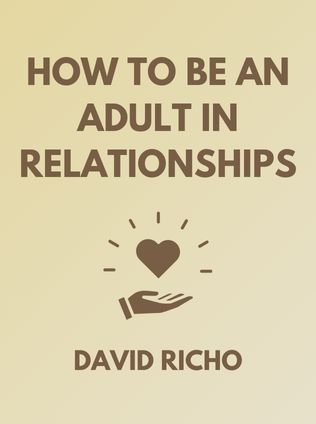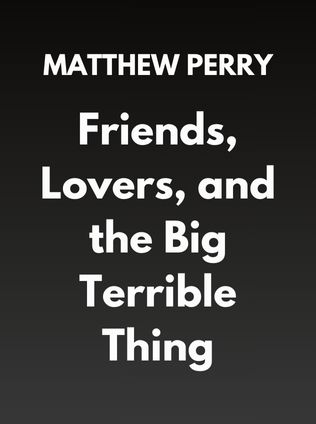
How to Be an Adult in Relationships
The Five Keys to Mindful Loving
By David Richo
Published 06/2002
About the Author
David Richo, a distinguished psychotherapist, author, and workshop leader, is a pioneer in integrating the principles of mindfulness into the realm of relationships. His extensive background in both Eastern spiritual traditions and Western psychology gives him a unique perspective that has enriched his writings and teachings. Richo's work is deeply influenced by his practice of Buddhism, which emphasizes the importance of presence and compassion in everyday life. Throughout his career, he has dedicated himself to helping individuals navigate the complexities of human relationships with greater awareness, emotional intelligence, and spiritual insight. His books, including "How to Be an Adult in Relationships," are widely regarded as transformative resources for anyone seeking to build healthier, more fulfilling connections with others.
Main Idea
The essence of "How to Be an Adult in Relationships" lies in the transformative power of mindfulness as it applies to love and relationships. Richo posits that mindful loving—an approach that emphasizes being fully present, compassionate, and emotionally resilient—is the key to creating and sustaining healthy, fulfilling relationships. He argues that by practicing mindfulness, individuals can overcome the challenges that arise in their relationships, heal from past wounds, and foster deeper, more authentic connections with their partners. Richo’s approach blends psychological insight with spiritual wisdom, offering a comprehensive guide to emotional maturity and relational well-being. Through mindful loving, he believes we can achieve not only personal growth but also contribute to a more compassionate and loving world.
Table of Contents
- What It Means to Love Mindfully
- Becoming Someone Who Can Love Mindfully
- How Mindful Love Strengthens and Sustains Relationships
- Loving Well Means Loving the World
1. What It Means to Love Mindfully
In the opening section of the book, Richo introduces the concept of mindfulness, a cornerstone of Buddhist philosophy, which involves observing the present moment without judgment or attachment. He expands this idea into the realm of relationships, coining the term "mindful loving." This practice involves perceiving our partners, ourselves, and the dynamics of our relationships as they truly are, free from the distortions of our expectations, fears, or desires.
Richo outlines several core benefits of adopting a mindful approach to love:
- Facing Reality: Mindfulness encourages us to confront the reality of our relationships without the interference of our preconceived notions or emotional biases. For example, if a partner forgets an important date, a mindful response focuses on the simple fact of the oversight, rather than interpreting it as a sign of neglect or lack of love. This helps in making more balanced and fair judgments about our relationships.
- Emotional Resilience: Mindfulness teaches us that we are capable of enduring all of our feelings, no matter how uncomfortable they may be. This resilience allows us to be more authentic in our relationships, as we no longer need to fear our own emotional responses. By embracing our emotions fully, we become better equipped to handle conflicts and challenges in a healthy, constructive manner.
- Compassionate Validation: Mindfulness fosters a deep sense of compassion, enabling us to validate our partner's experiences and emotions, even when they differ from our own. This validation is a critical component of healthy relationships, as it helps create an environment where both partners feel understood, accepted, and valued.
These elements of mindful loving create a foundation for relationships that are not only more fulfilling but also more resilient to the inevitable challenges that life presents.
“When you love mindfully, these benefits can support your relationships too.” - David Richo
2. Becoming Someone Who Can Love Mindfully
Richo emphasizes that the ability to love mindfully is not innate; rather, it is a skill that must be cultivated through emotional maturity. He asserts that our capacity for mindful love is deeply influenced by the love we received—or lacked—as children. If our parents provided us with mindful, unconditional love, we are likely to develop into emotionally mature adults capable of healthy, loving relationships. However, if our childhood experiences were marked by emotional neglect, inconsistency, or abuse, we may carry wounds that hinder our ability to engage in mindful loving as adults.
Richo identifies three common ways that childhood wounds manifest in adult relationships:
Sign up for FREE and get access to 1,400+ books summaries.
You May Also Like
The Subtle Art of Not Giving a F*ck
A Counterintuitive Approach to Living a Good Life
By Mark MansonHow To Win Friends and Influence People
The All-Time Classic Manual Of People Skills
By Dale CarnegieFreakonomics
A Rogue Economist Explores the Hidden Side of Everything
By Steven D. Levitt and Stephen J. DubnerQuiet: The Power of Introverts
The Power of Introverts in a World That Can't Stop Talking
By Susan Cain



















